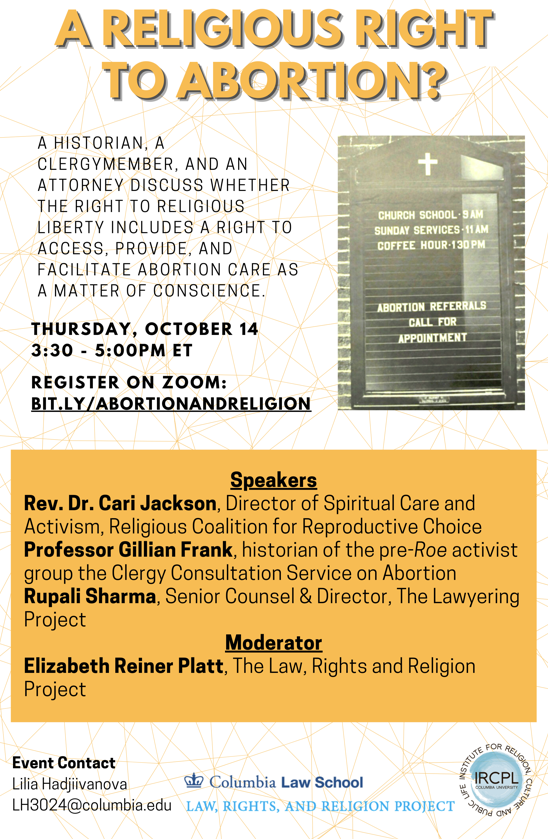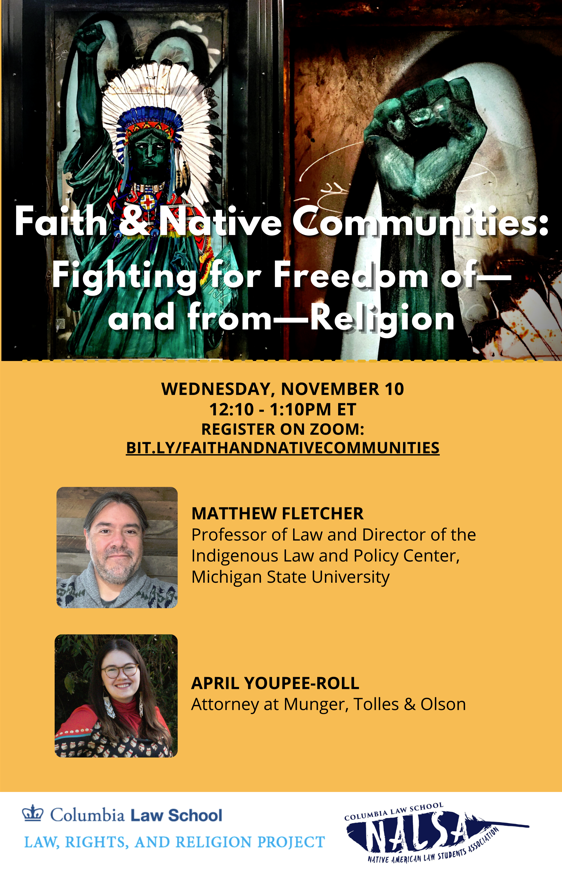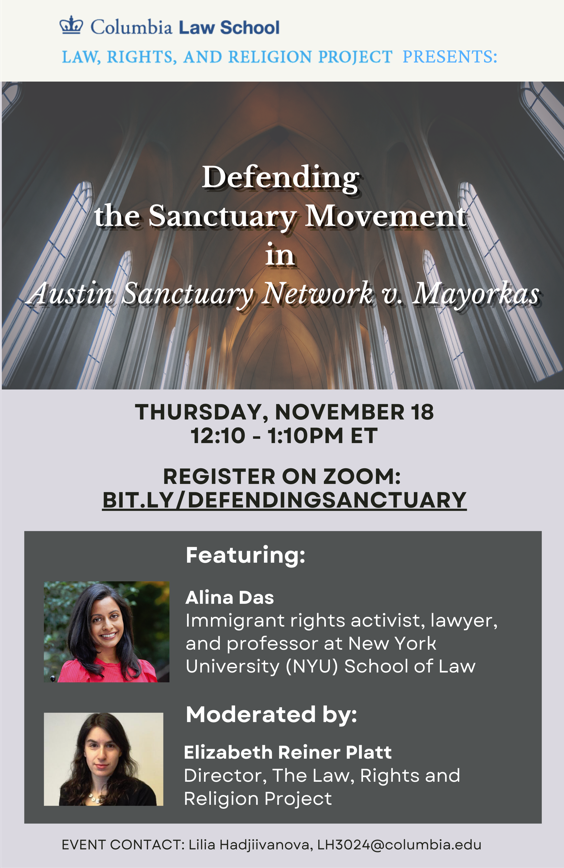LRRP Fall Events: A Religious Right to Abortion & more
What we're up to this fall
This fall we have an exciting line-up of events. Find more details below and register to join on Zoom!
If you're a Columbia University affiliate with a valid CUID, you will be able to attend some of these events in person. More below.
Thursday, October 14th
3:30pm – 5pm ET
A Religious Right to Abortion?
In this interdisciplinary conversation, a historian, clergymember, and attorney discuss whether the right to religious liberty includes a right to access, provide, and facilitate abortion care as a matter of conscience.
Join Rev. Dr. Cari Jackson, Director of Spiritual Care and Activism at the Religious Coalition for Reproductive Choice, Professor Gillian Frank, historian of the pre-Roe activist group the Clergy Consultation Service on Abortion, and Rupali Sharma, Senior Counsel & Director at The Lawyering Project at this panel event hosted by the Law, Rights, and Religion Project and the Institute for Religion, Culture, and Public Life.
Register at bit.ly/abortionandreligion
Monday, October 25 through Thursday, October 28, 2021
CHANGE Philanthropy Unity Summit
(Virtual)
Don't miss the Spark Talk by LRRP Director Liz Platt
www.changeunitysummit.org
Learn more and register here.
Tuesday, November 9th
4:00pm ET
A Progressive Vision for Religious Liberty
Hosted by the Secular Student Alliance
In this talk, our Director, Liz Reiner Platt will discuss the progressive vision for religious liberty laid out in LRRP's report, "All Faiths and None: A Guide to Protecting Religious Liberty for Everyone". This event is organized by the Secular Student Alliance.
Wednesday, November 10th
12:10pm – 1:10pm ET
Faith & Native Communities: Fighting for Freedom of—and from—Religion
Note: Only Columbia University affiliates (faculty, students and staff with an active CUID) may attend in person. Campus location: Jerome Greene Hall 501.
The U.S government has long restricted—and even criminalized—many faith practices of Native American communities. Today, tribes across the country continue to bring religious liberty suits to defend their members’ religious exercise: most notably, to protect religious sites from environmental and spiritual degradation. At the same time, laws intended to protect religious exercise can also harm Native people by making them vulnerable to discrimination by religiously affiliated groups, such as foster care agencies. Join Professor Matthew Fletcher and attorney April Youpee-Roll for a discussion on protecting Native American communities’ right to religious exercise and their right to be free from religiously motivated discrimination.
Register on Zoom at bit.ly/faithandnativecommunities
Thursday, November 18th
12:10pm – 1:10pm ET
Defending the Sanctuary Movement in Austin Sanctuary Network v. Mayorkas
Note: Only Columbia University affiliates (faculty, students and staff with an active CUID) may attend in person. Campus location: Jerome Greene Hall 646.
Over the last several years, immigration advocates have brought several religious liberty lawsuits defending their right to assist migrants as a matter of faith. Most famously, members of the humanitarian aid group No More Deaths successfully defended their right to leave food and water in the desert for migrants crossing the Southern border as a form of religious exercise. Professor Alina Das joins us to discuss the latest lawsuit at the intersection of faith and immigration.
In Austin Sanctuary Network v. Mayorkas, Professor Das represents several leaders of the faith-based immigrant Sanctuary Movement, who are themselves undocumented women who have lived in sanctuary churches. Professor Das will discuss how her team developed the legal arguments and strategy around the case’s religion-based claims, how the claims fit into the larger immigration justice movement, and how they complement the free speech and other arguments in the case.
Register on Zoom at bit.ly/defendingsanctuary
Coming Soon
Two new, in-depth reports on the impact of Southern hospitals’ religious affiliations on healthcare.
Stay tuned!




